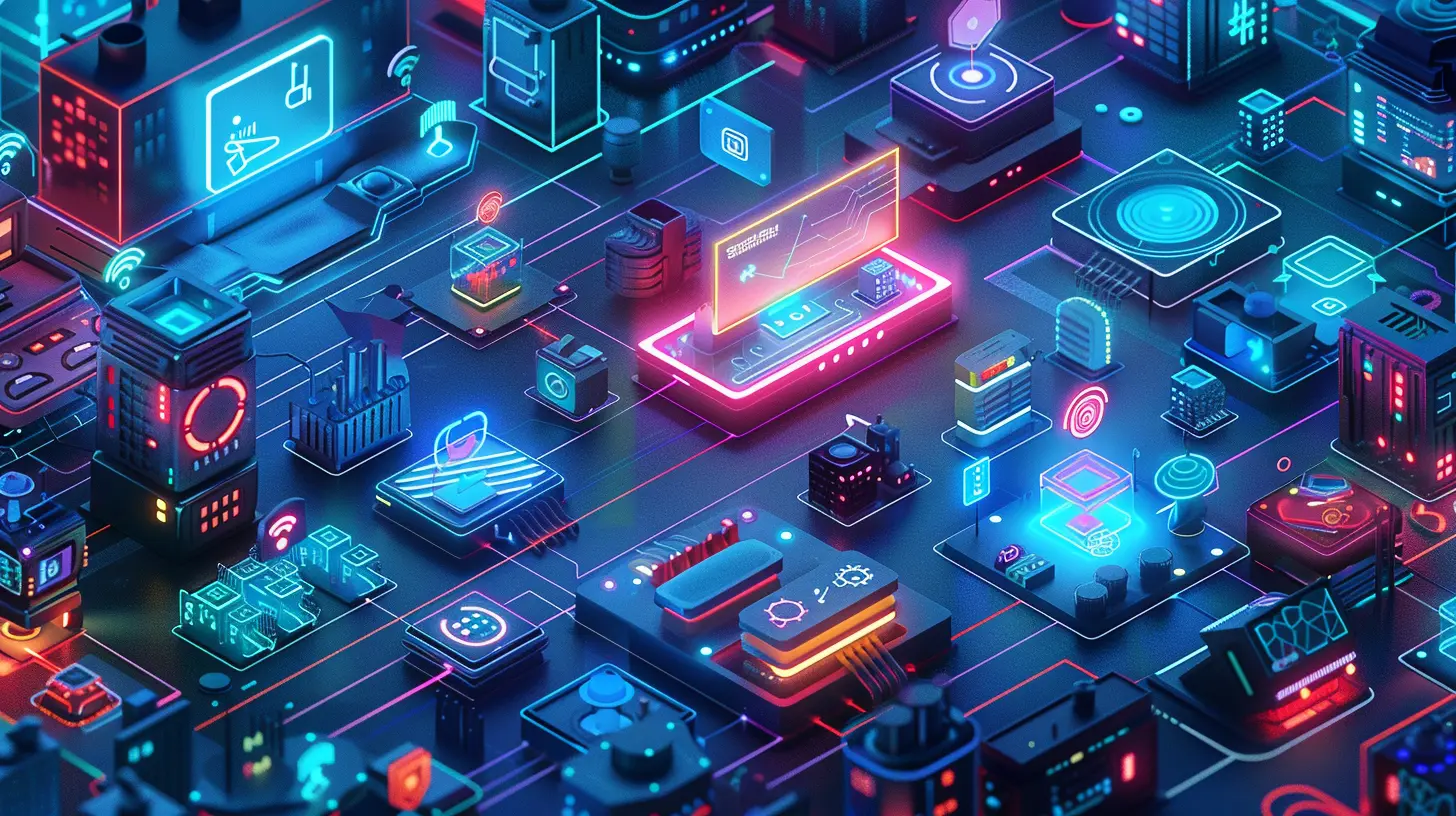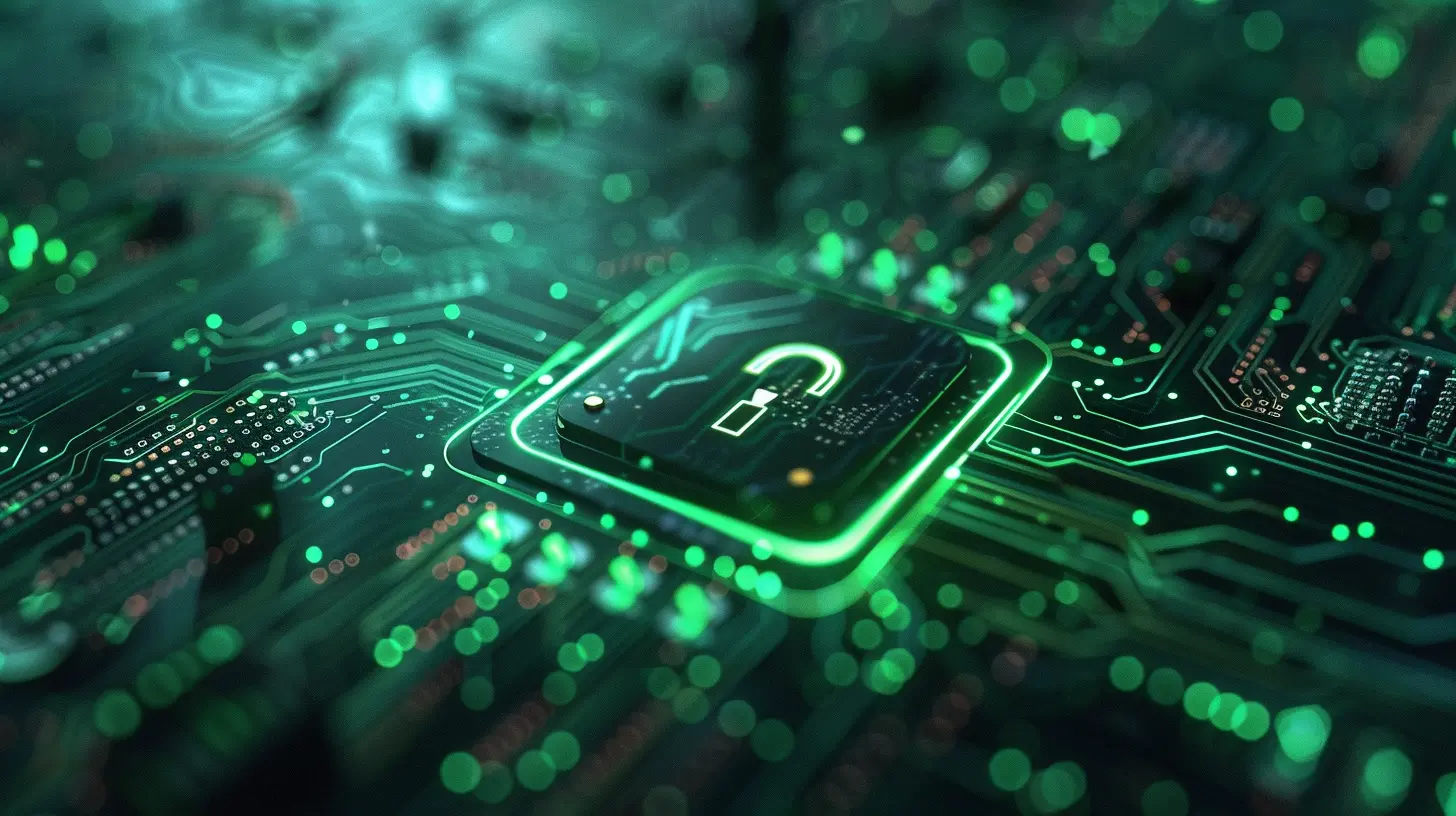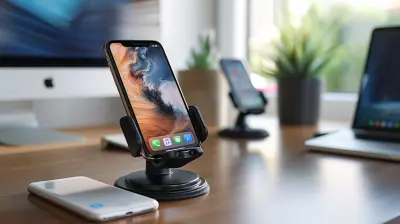The Role of Blockchain in Future Smart Home Security
29 September 2025
We all love the idea of smart homes—living spaces that respond to our voice commands, automate daily tasks, and keep us comfortable with intelligent systems. But here's the kicker: the more we rely on connected devices, the more we're exposed to digital vulnerabilities. So how do we keep our smart sanctuaries truly safe? Well, that’s where blockchain steps into the spotlight.
Yep, the same tech that powers Bitcoin might just be the key to securing your smart coffee machine, your AI-powered lights, and even your digital door locks. Sounds futuristic? It is. And it's happening.
In this post, we’re diving deep into how blockchain is poised to revolutionize smart home security. No fluff—just straight talk on the tech, the why, and the how.
What’s the Deal With Smart Home Security?
Let’s have a real moment here—smart homes are super convenient, but they’ve got a bit of a dark side. When you hook up dozens of IoT devices (Internet of Things), you’re also creating dozens of potential entry points for hackers.Think about it: your smart fridge, doorbell, thermostat, lights... even your toaster could be a way in for a cybercriminal if it’s not properly protected.
Traditional security methods like passwords and centralized cloud management? Well, they’re kinda outdated. Centralized systems can be hacked, data can be manipulated, and once someone’s in, they could potentially take over your whole network.
Scary? Sure. Unsolvable? Absolutely not.
Enter Blockchain: Your Digital Guard Dog
So what exactly is blockchain, and why should we care about it when it comes to home security?At its core, blockchain is a decentralized digital ledger. Rather than storing data in one single place (like on a server), it spreads it across a network of computers, creating what's called a "chain" of data "blocks." These are linked and encrypted in a way that makes tampering nearly impossible.
It’s like having a lock where every key is a unique math problem, and no one can pick it unless the entire network agrees it's legit. Nifty, right?
Now imagine applying that to your smart home.
Why Smart Homes Are Vulnerable – And How Blockchain Could Fix It
Before we get too deep, let’s call out what’s not working in current smart home setups:1. Centralized Control = Single Point of Failure
Most smart home ecosystems rely on a central hub or cloud server to manage devices. Hack that hub, and boom—you’ve got access to everything.How Blockchain Helps: Blockchain is decentralized. That means no central hub, no single point of failure. Every device communicates peer-to-peer with encrypted transactions that need to be verified. No backdoors. Period.
2. Weak Authentication Mechanisms
Ever reused a password? Yeah, you're not alone. Most smart home devices have weak default credentials or don't support advanced authentication.How Blockchain Helps: With blockchain, authentication can be handled via smart contracts—self-executing pieces of code that enforce rules automatically. Think of them as digital bouncers checking IDs at the door.
3. Data Privacy Risks
Your smart home devices collect tons of data—when you're home, your habits, your preferences. That data is gold for advertisers... and hackers.How Blockchain Helps: Since data on the blockchain is encrypted and stored in a decentralized way, it’s far harder to access or manipulate. Plus, you control the keys, not some faceless tech company.
Use Cases: Blockchain Securing Your Smart Living Space
Let’s get practical. How would blockchain really work in your smart home?1. Identity Management for Devices
Each smart device can have a unique, verifiable identity stored on the blockchain. This prevents spoofing—where an unknown device pretends to be legitimate to gain access.Imagine your smart lock only interacting with devices that are "whitelisted" on the blockchain. So even if someone cloned your phone, unless it’s on that list, it can’t unlock your front door. Simple, yet powerful.
2. Secure Communication Between Devices
Right now, many smart devices talk to each other through cloud-based APIs. But that’s risky.With blockchain, devices can communicate securely via encrypted peer-to-peer protocols. Think of it as them whispering secrets directly to each other, instead of shouting across the internet.
3. Automated and Transparent Access Logs
Every time someone opens your digital door lock, accesses your smart camera, or adjusts your thermostat, that can be recorded as a blockchain transaction. Immutable, time-stamped, and verifiable.Want to know if your dog walker really showed up at noon like they said? You’ll have proof—on the ledger.
4. Smart Contracts for Access Control
You could program your smart home to give temporary access to certain people at certain times. For instance, a house cleaner can access the garage door between 10 AM and 12 PM every Wednesday. Outside of those hours? No dice.And all that is handled automatically by smart contracts running on the blockchain—no manual configuration needed.
But Wait—Isn’t Blockchain Super Complex?
Let’s address the elephant in the room: blockchain sounds complicated. And it is, on the backend. But that doesn’t mean it has to be confusing for users.Think of it like your smartphone. Do you need to understand how 5G or GPS works to use Google Maps? Nope. Same goes here.
Once integrated into smart home systems, blockchain could quietly power all the security in the background without you noticing. Seamlessly. Silently. Efficiently.
The Future of Smart Home Networks
Alright, so we’ve covered why blockchain makes sense for smart home security. But what does the road ahead look like?Let’s imagine a full-blown future smart home powered by blockchain:
- Your devices auto-register themselves with encrypted identities.
- They communicate directly with each other without touching vulnerable cloud systems.
- You control and grant access through user-friendly apps linked to secure blockchain wallets.
- Every action—every door opened, light turned on, or camera accessed—is logged on an immutable ledger.
- Your data isn’t sold or shared because you own it.
That’s not just secure—that’s empowering.
Challenges Ahead (Because Nothing’s Perfect)
Okay, let’s not sugarcoat things.1. Scalability
Blockchain networks can struggle with speed, especially when handling thousands of simultaneous transactions—all of which could be reality in a house brimming with IoT devices.What’s Being Done: Developers are working on Layer 2 solutions and other scalability upgrades to improve speed and throughput.
2. Energy Consumption
Certain blockchains, especially those using Proof-of-Work, are energy hogs. Not ideal for eco-conscious homeowners.The Shift: Newer blockchains use Proof-of-Stake or other eco-friendly consensus algorithms that drastically cut down energy use.
3. Industry Adoption
Smart home manufacturers have to adopt blockchain protocols for this to work at scale. That means agreements, standards, and a lot of cooperation.Signs of Progress: Several startups and major tech firms are already exploring blockchain-powered IoT frameworks, so it’s not just wishful thinking.
Wrapping It Up: Blockchain = The Future of Smart Home Security
So, what’s the takeaway here?Blockchain isn’t just some buzzword from the crypto world anymore. It’s a real, tangible technology with massive potential to reshape how we think about smart home security.
It’s about giving you control.
It’s about protecting your privacy.
It’s about eliminating the vulnerabilities baked into today’s smart home ecosystems.
Sure, there are some hurdles, but remember—every revolution starts with a few growing pains. And if we’re serious about creating smart homes that are not just clever but also safe, blockchain might just be the secret weapon we’ve been waiting for.
So next time someone talks about how their smart toaster is connected to the cloud, you can ask, "Yeah, but is it on the chain?
all images in this post were generated using AI tools
Category:
Home AutomationAuthor:

Jerry Graham
Discussion
rate this article
1 comments
Jet Barron
Blockchain's decentralized nature can enhance smart home security by ensuring data integrity and privacy. Its immutable ledger can safeguard against unauthorized access and hacking, providing homeowners with greater control and transparency over their security systems, thereby fostering trust in connected devices.
October 3, 2025 at 2:37 AM

Jerry Graham
Thank you for your insightful comment! Indeed, blockchain's decentralization can significantly bolster smart home security by enhancing data integrity and fostering trust in connected systems.


